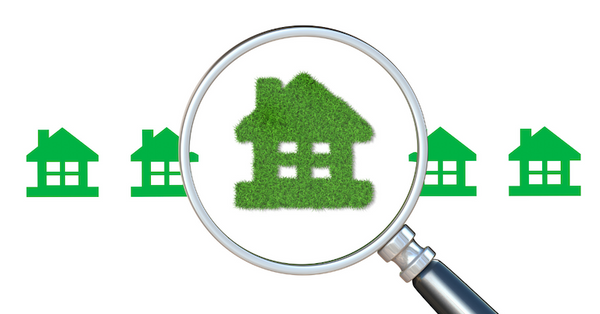Looking to get your feet wet in the world of real estate investing but don’t quite know where to start? There are several ways for beginner’s to dive right into real estate investing depending on what they are trying to achieve. One of the easiest and most popular investing methods in the industry is wholesaling real estate.
Wholesaling real estate is a fantastic and cost-effective way to make quick money when you don’t have much capital to invest. If you can learn to wholesale correctly, you will have the unique advantage of being able to find your own deals, purchase properties, and learn creative ways to fund the properties you are able to get under contract.
While the process may seem simple enough, wholesaling real estate isn’t as easy as many make it out to be. Keep reading to find out what wholesaling is, how the process works, and what the pros and cons are that you will need to weigh out.
What is wholesaling?
Whereas the BRRRR method involves buying and repairing properties, wholesaling consists of buying and selling houses quickly without making repairs. In this process, a wholesaler will get properties under contract well below market value. From there, they will sell the property or assign the contracts to other investors at a higher price. These investors will purchase the property and the wholesaler will keep the difference between the two prices.
How does wholesaling work?
The best way to understand the wholesaling process is through a hypothetical wholesaling transaction. Take this example of how a typical wholesaling transaction works.
Step 1:
The wholesaler will drive around our research properties that are either distressed or appear to be abandoned. Once a distressed property is found, the wholesaler will use a local county tax website to find the address and the owner.
Step 2:
Once the owner’s contact information is found, the wholesaler will reach out to the owner and see how much they are willing to sell the property for. In this scenario, the seller offers to sell for $70,000.
Step 3:
After some research, the wholesaler provides a counteroffer and negotiates with the seller to come up with a price that offers the wholesaler the best deal. After negotiating, the seller has agreed to sell the property for $60,000.
Step 4:
With price reached, the wholesaler goes under contract on the property. However, instead of buying the property themselves, the wholesaler contacts cash buyers or other investors who are willing to buy it. These particular buyers are willing to pay $65,000.
Step 5:
The wholesaler accepts the offer of $65,000 and assigns the contract he has with the seller to the new buyer. At closing, the seller gets $60,000, the wholesaler profits $5,000 from the sale, and the buyer purchases a property that is ready to be flipped.
If you think about it, the wholesaler essentially serves as the middleman between sellers in and other investors/buyers. The wholesaler was able to make a profit off the sale because they used their knowledge and negotiation skills to get the contract under market value.
Pros of Wholesaling Real Estate
Wholesaling can be a great option for many, especially beginner investors interested in real estate. If you’re on the fence about getting involved in selling, here are a couple benefits the process has to offer.
It’s an easy way to get into real estate
If you are just starting out in the real estate investing world, wholesaling is a great place to start. In fact, you don’t even need a real estate license.Those who wholesale are quickly immersed into the industry.
As a wholesaler, you will learn how to find solid leads, build trust with sellers, do due diligence on a property, run comps to find current market values, estimate the after repair values, create a list of buyers, and much more. Try to speak with other wholesalers who have been successful. With the right resources and practice, you are sure to find success as well.
You earn a lot of money in a short time period
Not having to renovate the property means wholesalers can make more money in a shorter period of time compared to other investor strategies. Once you have a good system in place, you should be able to get many properties under contract relatively quickly.
Those buying from the wholesaler will have to spend the time rehabbing the property. The wholesaler just has to wait the amount of time it takes to close after finding a buyer. This is typically 30 days or less depending on the wholesalers experience and resources.
Minimal capital is required start
Perhaps one one of the greatest benefits of wholesaling is that it is an inexpensive way to make money. Wholesalers are forced to be creative when it comes to finding the funds to acquire a property. With wholesaling, there is no need to provide a hefty cash offer or have a good credit score.
Because wholesalers are not purchasing the property, they don’t have to have a cash offer or a mortgage loan from the bank. The only money needed is to find motivated sellers and leads, as well as possibly paying for a mentor to show you the ropes in the beginning.
Cons of Wholesaling Real Estate
Like all real estate investing methods, wholesaling comes with some cons. While the process could be a great opportunity for many looking to make quick money, it might not be the best investment for others.
Can be challenging if you can’t find a buyer quickly
In order for the wholesaler to make any money, they need to find a buyer to take over the contract and purchase the property. When the wholesaler acquires a new property, there is usually a set date written into the contract. This date is when the wholesaler should have a buyer.
If the wholesaler prices the property too high, the buyers will be unwilling or unable to make a deal. This means the wholesaler will have to lower their price and/or spend extra time finding buyers that will make the purchase.
Can result in unethical practices
Wholesalers can often get a bad reputation of taking advantage of both sellers and buyers. Many who get into wholesaling don’t take the time to properly learn how to wholesale in an ethical way.
Remember that transparency is key. Don’t advertise your property as “for sale” when you are selling interest in a contract. Those two messages are for different processes and can be the difference between a legal business deal and an illegal transaction. Take the time to learn the right way to wholesale and go into it with genuine intentions only. You don't want to get in trouble.
The income isn’t always stable
Wholesaling isn’t your typical 9-5 job with a steady bi-monthly income. Depending on the market, there could be months at a time where you are not making money. As a wholesaler, you are responsible for being diligent with your finances. When first starting out, try and save a portion of the profits. This way you have a bit of money tucked away in case it takes a while to close on another deal.
Many of the most successful people in the world have gotten their start through investing in real estate. If you are interested in getting started as well, consider wholesaling as your first step into the real estate investing world. With a good mentor, diligence, and little money down, you can build upon your wholesaling success and further your investing ventures.
Need help finding a mentor for searching for leads? Contact us at SimpleShowing. Our team or agents are real estate experts prepared to help you make smart moves for your investing futures. Let us know how we can help you be smart and save smart throughout your real estate journey.
Conclusion
Wholesaling real estate provides an excellent opportunity for both novice and experienced real estate investors to grow their investment portfolios. Through careful analysis of the real estate market, determining fair market value, and leveraging their real estate license, real estate agents can transition into successful real estate wholesalers. This process, however, requires a deep understanding of the real estate industry, as well as honed negotiation skills to identify and secure profitable wholesale deals.
Dealing primarily with investment property, particularly distressed properties, real estate wholesaling provides a way for investors to generate income with minimal capital outlay. Although it's a competitive field, the potential for substantial profits can be significant. Investors who understand how to leverage rental properties and other types of real estate can find wholesaling an effective strategy for rapid growth.
Remember, succeeding as a real estate wholesaler means becoming a master of your local real estate market, building a network of potential buyers, and learning how to accurately value properties. Armed with these skills, you'll be well-equipped to navigate the real estate industry and make wholesaling real estate a lucrative component of your investment strategy.




